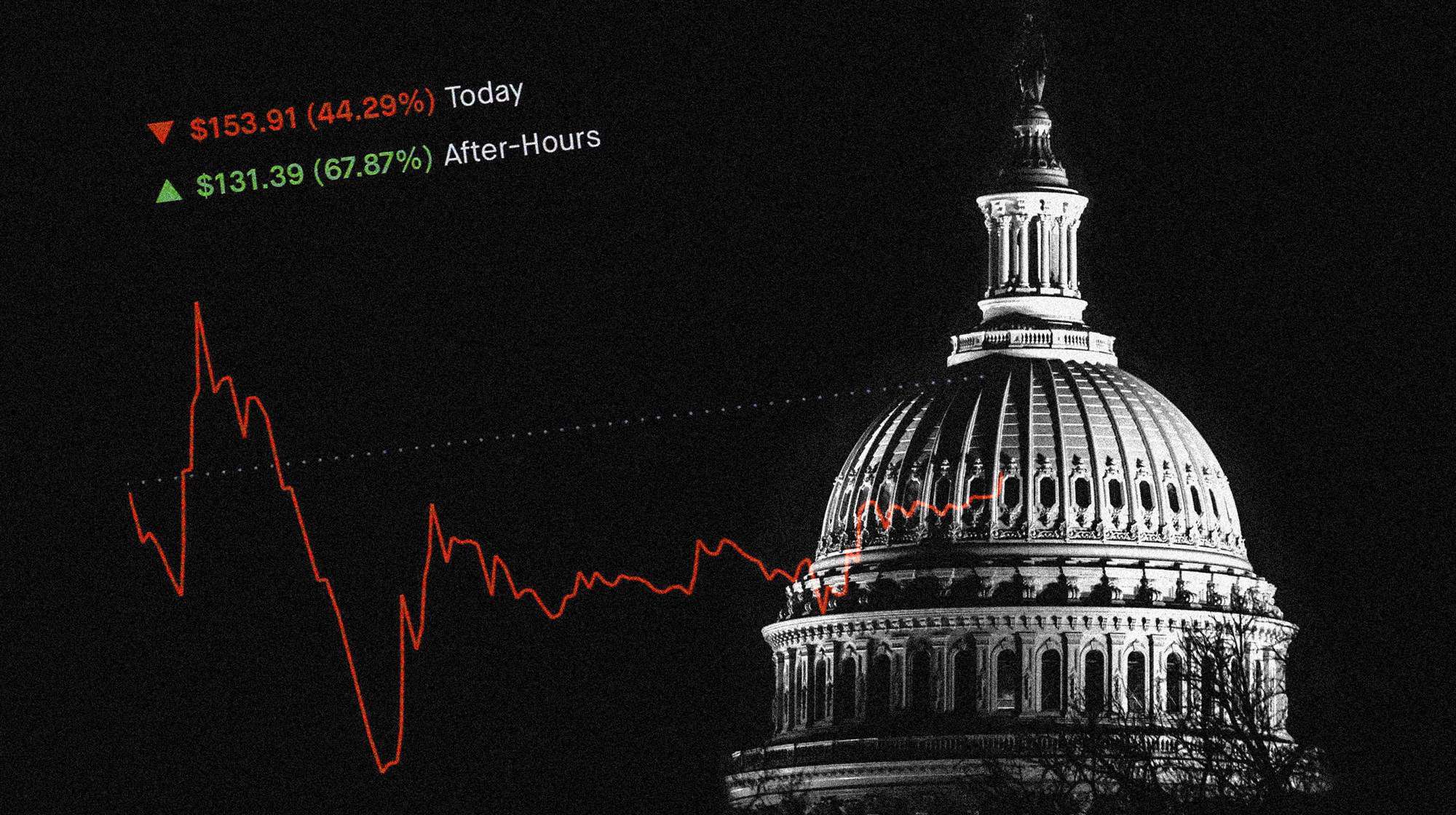A number of Democrats and Republicans united in opposition to the strict limits imposed by Robinhood and other online stock brokerages on the purchasing of GameStop and other stocks swept up in a Reddit-fueled trading frenzy this week.
Members of Congress such as Alexandria Ocasio-Cortez, D-N.Y., Ro Khanna, D-Calif., Ted Lieu, D-Calif., Ken Buck, R-Colo., and Sens. Pat Toomey, R-Pa. and Ted Cruz, R-Texas, were among those who criticized the move, with many calling for hearings that Democratic leaders say will soon take place in both the House and Senate as what began as an internet movement continues to roil Wall Street.
Lawmakers trained attention on the volatility surrounding GameStop’s stock much like many others this week. The stock climbed from $4 only a few months ago to more than $400 this week, juiced by an online movement not dissimilar to others that have broadly altered the political landscape in recent years. At the same time, hedge funds that made large bets on GameStop’s stock cratering — known as “shorting” — began to pile up big losses. Then the brokerages instituted limits, leading to charges of collusion with the larger financial entities facing big losses.
Robinhood’s co-founder, Vladimir Tenev, said hours after the change that it had no choice but to limit the stocks as it and its peers were forced by obligations imposed by federal regulators. The decision “was not made on the direction of any market maker we route to or other market participants,” he said, adding that notions to the contrary amounted to “misinformation.”
For both progressive and more conservative members, there was a sense that the nation was watching a populist insurgency win out, however temporarily, against a so-called rigged system. Yet there is not broad consensus on policy goals to pursue in response to the brokerages limiting the ability for users to trade in the handful of stocks.
“There’s clearly bipartisan concern,” Michael Steel, a former spokesman to then-House Speaker John Boehner, R-Ohio, told NBC News. “I think the question is whether there are effective public policy changes that make sense and would make a difference.”
For the left, the restrictions were viewed as further evidence of Wall Street malfeasance, prompting demands for greater regulation. On the right, lawmakers decried the limits as flouting the free market, while comparing the curtailment to other claims of big tech “censorship.”
That dynamic — surface level agreement that gives way to existing partisan divides — mirrors the partisan gaps in other areas in which the parties have found some shared gripes, most notably with the major U.S. tech companies.
House Financial Services Committee Chairwoman Maxine Waters, D-Calif., and incoming Senate Banking Committee Chairmen Sherrod Brown, D-Ohio, said their committees would both soon hold hearings to address the ordeal. Democrats and progressives also said the episode makes confirmation of President Joe Biden’s selection for Securities and Exchange Commission chair, Gary Gensler, all the more pressing.
“Bipartisan support for an investigation is good, but at the end of the day, if you believe someone like Ted Cruz will actually stand up to Wall Street, I have a GameStop short position I’d like to sell you,” said Tim Hogan, a Democratic consultant and former spokesperson for Sen. Amy Klobuchar’s presidential campaign.
Sen. Elizabeth Warren, D-Mass., one of the leading Democrats on issues of financial regulation, wrote to the SEC’s acting commissioner on Friday questioning the extent to which a combination of large investors and online message boards impacted the fluctuation of GameStop’s stock, if any of those practices ran afoul of existing laws, and if the “wild swings” in GameStop and other companies’ value “present any systemic concerns for financial systems or the stock market?”
“There are rich people on both sides of this, people who are trying, it appears, to manipulate this market,” Warren told CNBC on Thursday. “And that’s what we don’t know the details of.”
Like many of the forces shaping American politics in recent years, the Reddit forum, r/WallStreetBets — which describes itself as “Like 4chan found a Bloomberg Terminal” and is credited with originating much of the trading frenzy — sells the idea of the little guy taking on the big establishment. Amid a pandemic that has triggered a surge in retail trading, its audience has grown substantially in recent months.
“You know something is about to go down when most members of Congress are United over Wall Street trying to f— us,” one user wrote Thursday, linking to a tweet from Lieu. Another wrote about how he was not particularly moved into entering the GameStop trade until it “morphed into a class movement.”
“I’m a big populist and think we need big changes in this country, especially a transfer of wealth and power from the elites to the people,” the user wrote. “When this morphed into a class movement I became obsessed.”
The wild ascension of the GameStop traders has been cheered on by some of the world’s wealthiest individuals, like Tesla CEO Elon Musk and the Winklevoss twins. Former President Donald Trump’s eldest son, Donald Trump Jr., has also sought to cast himself as an ally of the Redditors.
Andy Surabian, a Republican strategist, said people are “probably underestimating how big of a moment this was,” adding the episode likely “did more to hurt Big Tech in the eyes of people who weren’t already gunning for them, than anything I’ve seen in recent history.”
Appearing to sense a shift in political winds, Robinhood listed a job Friday for a “Federal Affairs Manager” to “focus on federal advocacy and government affairs” dealing with laws and regulations.
“The job listing doesn’t mention this, but you’ll also get to know the House Financial Services Committee,” Rep. Jamaal Bowman, D-N.Y., tweeted, along with a crying-laughing emoji.

